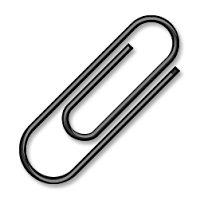记忆方法
将“attach”联想到“贴上”的动作。想象自己把东西“贴”上或“附”上某个表面,如贴一张贴纸,这样可以帮助你记住“attach”的意思是连接、附加或附着。
以上内容由AI生成, 仅供参考和借鉴
中文词源
attach 依附,联系
前缀at-同ad-,在字母t开头词根前同化为at-. - tach来自stake, 木桩,指固定在木桩上,或钉木桩以宣称所有权,此处s脱落。
英语词源
- attach
-
attach: [14] When English first acquired it, attach meant ‘seize’ or ‘arrest’. It is Germanic in origin, but reached us via Old French atachier. This was an alteration of earlier Old French estachier ‘fasten (with a stake)’, which was based on a hypothetical Germanic *stakōn. The metaphorical meaning ‘arrest’ appears to have arisen in Anglo-Norman, the route by which the word reached English from Old French; the original, literal sense ‘fasten, join’ did not arrive in English until as late as the 18th century, as a reborrowing from modern French attacher.
A similar borrowing of Germanic *stakōn into Italian produced the ancestor of English attack.
=> attack, stake - attach (v.)
- mid-14c. (mid-13c. in Anglo-Latin), "to take or seize (property or goods) by law," a legal term, from Old French atachier (11c.), earlier estachier "to attach, fix; stake up, support" (Modern French attacher, also compare Italian attaccare), perhaps from a- "to" + Frankish *stakon "a post, stake" or a similar Germanic word (see stake (n.)). Meaning "to fasten, affix, connect" is from c. 1400. Related: Attached; attaching.
权威例句
- 1. Magistrates will be able to attach conditions when juveniles are remanded.
- 地方法官将可以在少年犯送押时提出附加条件。
- 2. Ink particles attach themselves to air bubbles and rise to the surface.
- 墨汁颗粒附着在气泡上,浮到表面上。
- 3. He said they would attach conditions to the handover of the base.
- 他说他们将对基地的移交附加一些条件。
- 4. It is possible to attach executable program files to e-mail.
- 可以在电子邮件里附上可执行程序文件。
- 5. Attach the coupon to the front of your letter.
- 把优惠券附在信的正面。

